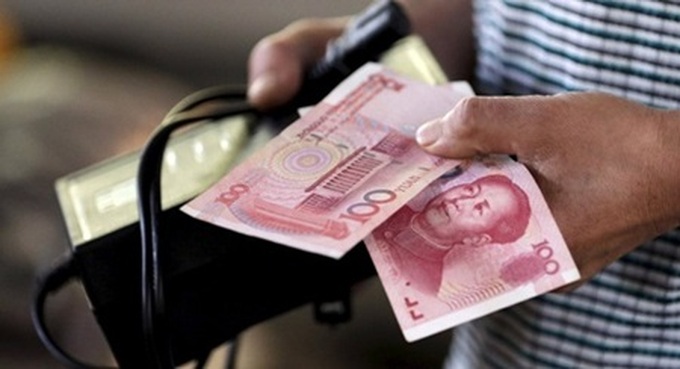With the International Monetary Fund (IMF) including China's yuan in its elite reserve currency basket, impacts from the step on Vietnam's economy will depend on its preparation, according to experts.
 |
| The IMF on Monday welcomed China's yuan into its elite reserve currency basket, known as "Special Drawing Rights," recognising the ascendance of the Asian power. |
The IMF's decision will impact global finance and Vietnam is not an exception, especially when the country's economy depends significantly on China, especially trade.
The IMF on Monday welcomed China's yuan into its elite reserve currency basket, known as "Special Drawing Rights," recognising the ascendance of the Asian power.
The yuan, also known as the renminbi, will join the US dollar, euro, Japanese yen and the British pound next year in the basket of currencies the IMF uses as an international reserve asset.
According to economist Can Van Luc, in the short run, its impact on Vietnam's economy is relatively limited and mainly because of market sentiment. However, in the long run, the impact will be on Vietnam's export, import, foreign debts and foreign exchange.
According to Luc, Vietnam's foreign debt will be affected as with the inclusion of the yuan, the dollar's weight in the new basket will change a little from its current 41.7 per cent. The euro will be 30.9 per cent, the yuan 10.9 per cent, the yen 8.3 per cent, and the pound 8.1 per cent.
A rise in the yuan's valuation would also cause a flood of Chinese goods in the Vietnamese market thanks to its competitiveness, Luc said.
He said a rising use of yuan in payment after the IMF's decision would also impact Vietnam's exports and imports.
Chinese partners could suggest making more use of the yuan in payment so that domestic traders would have to scrutinise it carefully to avoid risks caused by the adjustment of the yuan exchange rate. Currently, payment of Vietnam's trade with China is mainly in the US dollar. However, he said, the change would not have much of an impact on Vietnam's securities markets as Chinese investment to Vietnam's stock market was insignificant at roughly between US$6 billion and $7 billion.
To minimise the impact, Luc said that Vietnam's foreign exchange policy should be taken more flexible and active to avoid sudden shocks. According to former central bank governor Cao Sy Kiem, the impact of the IMF's decision on the yuan will depend on Vietnam's preparation.
He said that Vietnam was currently at a disadvantage due to a rise in the yuan's valuation after its addition to the IMF's SDR. Due to a high trade deficit with China, Vietnam will have to import materials from China at higher costs. The trade deficit therefore will further rise.
However, Kiem said, the IMF's decision on the yuan would not impact Vietnam if the country could balance trade with China.